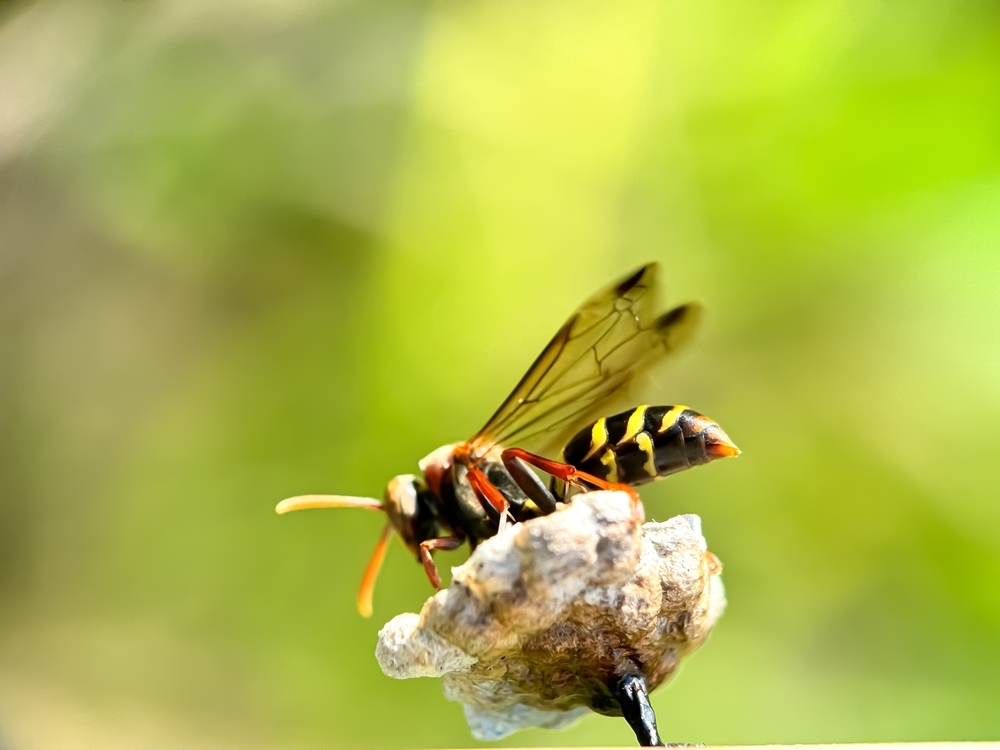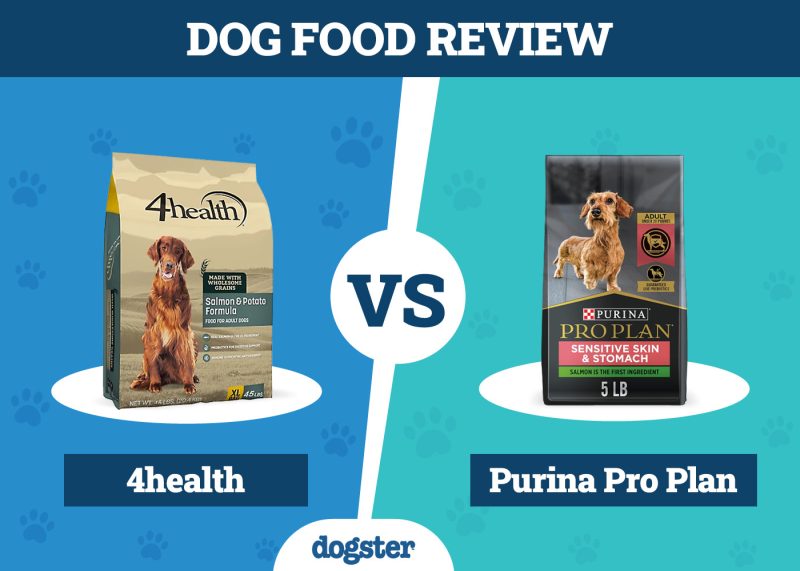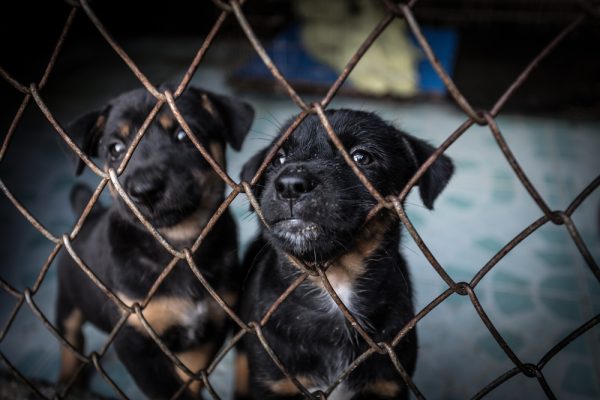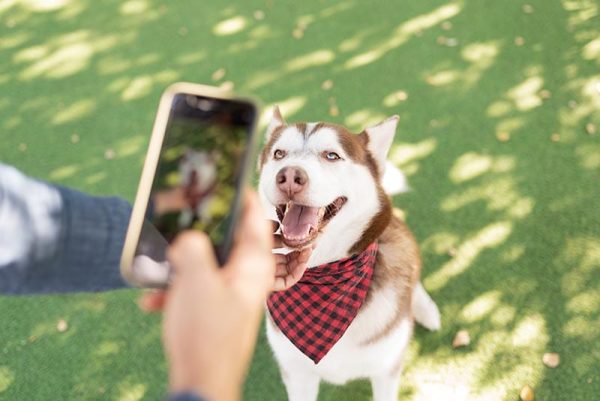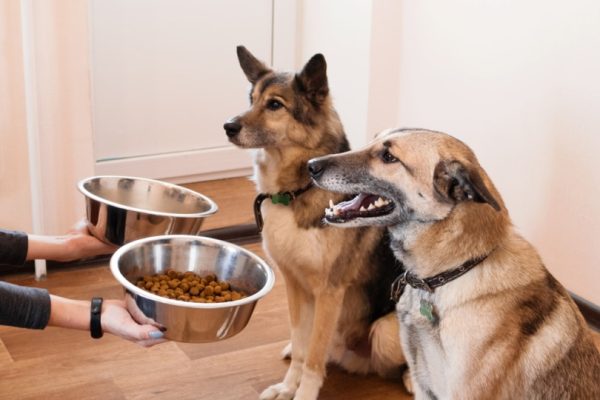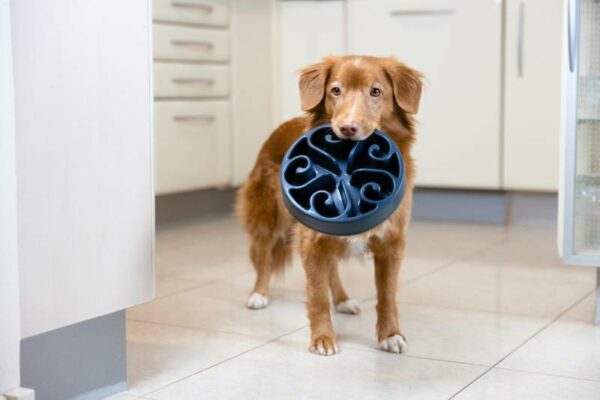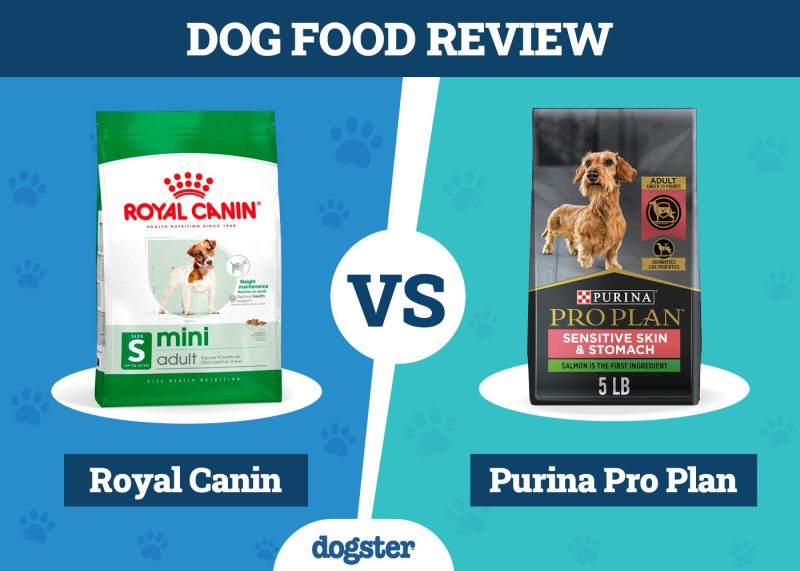All of us are likely aware of people who have serious allergies to bees and/or wasps and become worried that the same thing can happen to our dog. Oftentimes we notice our dogs lying in the sun, minding their own business, only to be interrupted by a buzzing wasp around them. If your dog is anything like mine, they will also be bothered by the noise of a buzzing wasp and try to grab them in their mouth. Luckily for us, severe allergic reactions are rare in dogs from eating a wasp, though still possible. Most commonly, though, nothing will happen except some swelling from a potential sting. It’s best to monitor your dog for any type of reaction, and contact a vet if a reaction occurs.

Risks of Your Dog Eating a Wasp
Potentially nothing. Sounds crazy right? But some dogs will have absolutely no reaction to eating a wasp and/or getting stung by a wasp. Other times your dog may be at risk for a severe anaphylactic reaction. This is a life-threatening situation that requires immediate medical care by a veterinarian. Anaphylaxis is rare, but possible. There is no way to know if your dog will suffer no reaction, anaphylaxis, or a mild allergic reaction (most common). Because there is no way to predict or prevent a reaction, we always recommend taking precautions and keeping your dog away from any areas with bees and/or wasps.
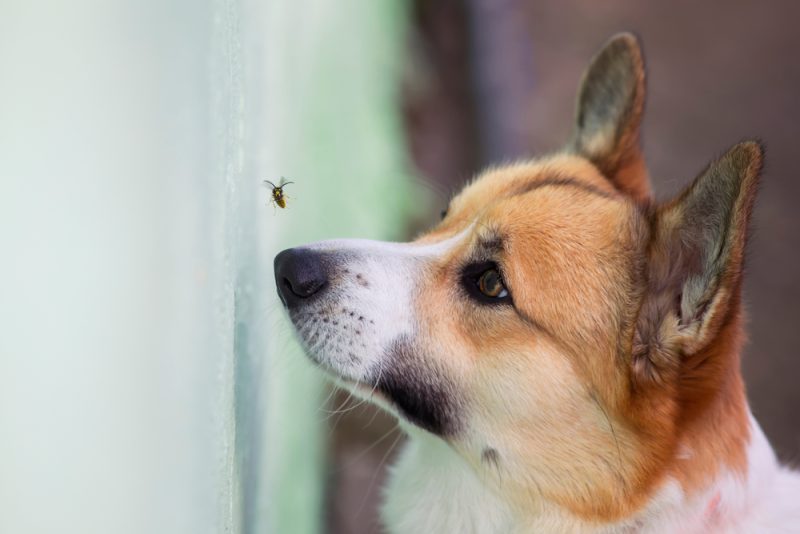
Signs Your Dog Ate a Wasp
The most obvious could be that you physically watched your dog ingest a wasp. This is most common in a dog who loves to chase them, or who is lying on the porch or in the yard with a wasp or two buzzing around their face.
Other times, you may not witness your dog ingest the wasp but start to frantically paw at their mouth and/or face. This could happen immediately if the wasp stung your dog’s mouth as it was swallowed, or occur once an allergic reaction sets in. If your dog has an allergic reaction to a wasp, you will either notice it immediately (anaphylaxis), or up to a few hours later. Anaphylaxis is fairly rare in dogs, but will often cause your dog to immediately vomit, collapse, and develop difficulty breathing, pale gums, and severe weakness. Immediate veterinary care is needed if this happens.
More commonly we will see a mild allergic reaction develop hours later, most commonly as a swollen face, ears, muzzle, and/or hives over any part of the body. With the swelling and hives, your dog will also start to itch. You may notice them shaking their head, pawing at their face, or rubbing their face/head frantically on the ground or against furniture.
The 7 Steps to Take if Your Dog Ate a Wasp
1. First, Don’t Panic
As we mentioned above, nothing may happen if your dog eats a wasp. If something does, most commonly it will be a mild allergic reaction. Don’t panic if you notice your dog has eaten a wasp, or is chasing them. Stay calm so that your dog will also stay calm.
2. Do Not Attempt to Open Your Dog’s Mouth
If you actually see your dog snap at and catch a wasp, do not run to them and attempt to pry their mouth open. Not only will this freak your dog out, but you can seriously hurt them by forcing them to open their mouth. Chances are once the wasp is in, it’s already dead and/or swallowed and you will not be able to recover it.
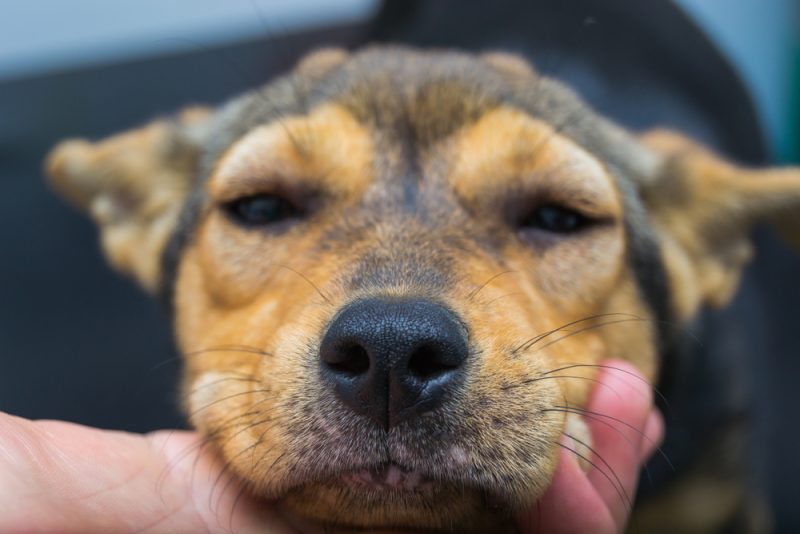
3. Do Not Put Anything into Your Dog’s Mouth or Down Their Throat
There is absolutely no reason to do this. You may have read inaccurate information online about “absorbing” wasp toxin and/or coating your dog’s mouth to help with the irritation of a sting. But there is absolutely nothing that does this. Not only can you hurt your dog as we mentioned above, but if you force your dog to try and swallow something, they may actually choke or aspirate the liquid, potentially causing life-threatening complications.
4. Monitor for Anaphylaxis
We mentioned above that while rare, anaphylaxis can happen. If your dog is having an anaphylactic reaction to a wasp sting, you will know within a few minutes. Typically, your dog will vomit, sometimes have diarrhea as well, and then collapse. They’ll often not lose consciousness but suffer acute weakness, collapse down, start to have trouble breathing, and become pale. If you notice any of this, scoop your dog up, get them into the car and take them to your nearest emergency clinic.
5. Look for an Allergic Reaction
If your dog did not suffer anaphylaxis, they may be fine. Other times, an allergic reaction may set in minutes to hours after they eat a wasp. Watch for your dog shaking their head, itching and/or rubbing their face, swelling of any part of the face, or hives. Even if your dog ate the wasp, hives, redness, and swelling can occur anywhere on the body. Don’t panic if you notice this. Even with facial swelling, it is not common for dogs’ throats to “swell shut”. You have time to collect your thoughts and get your dog appropriate treatment.
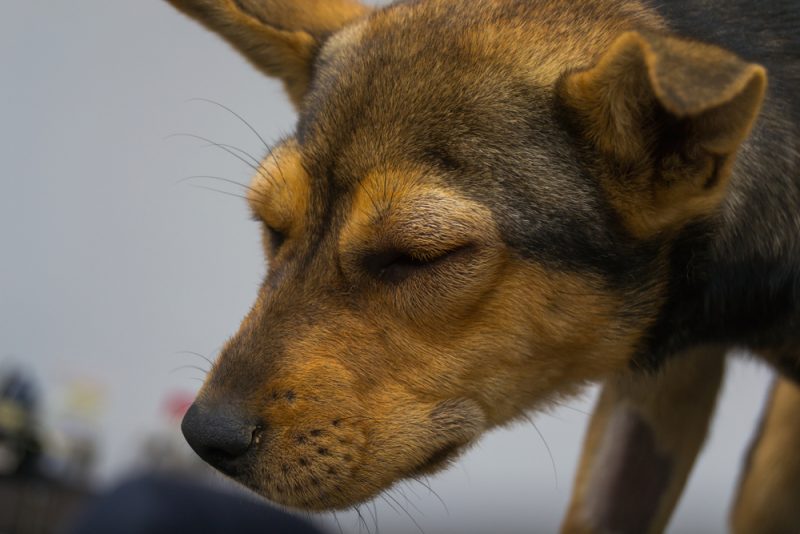
6. Contact Your Veterinarian, an Animal Poison Control Center, or a Telehealth Veterinarian
Unfortunately, I am unable to give you a dose of over-the-counter (OTC) medications that you may be able to give your dog. This is because in many states, it’s illegal for veterinarians to give medication dosages without first seeing the patient. However, I am here to tell you that your veterinarian, if your dog is up to date on their vaccines and exam with them, or newer telehealth veterinarians, may be able to do this for you. Many dogs do perfectly fine with a few doses of OTC diphenhydramine if they are having a mild allergic reaction from a wasp. However, it’s always recommended to ask a veterinarian so that appropriate medications and dosages can be recommended based on your dog’s health and current medications.
If you need to speak with a vet but can't get to one, head over to PangoVet. It's our online service where you can talk to a vet online and get the advice you need for your pet — all at an affordable price!

7. Always Seek Care If You’re Concerned
Any dog having an anaphylactic reaction needs immediate veterinary care. If your dog is acting fairly normal, or only having a mild allergic reaction, it’s still OK to seek care if you are concerned. Some dogs will do better if they see a veterinarian and receive injectable antihistamines versus taking them by mouth. It’s never wrong to seek out veterinary care even if it’s just to help you sleep better at night.
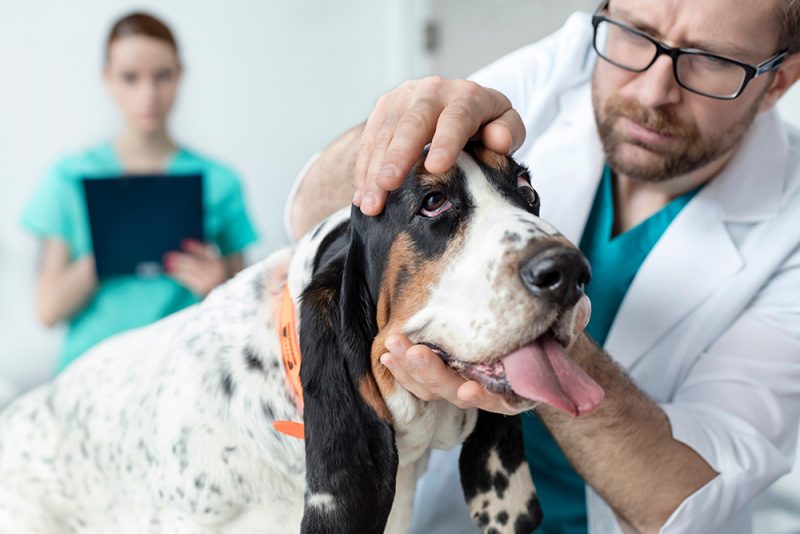

Conclusion
Eating a wasp is fairly common, especially in the summertime. Many dogs will get bit when they are just lying outside minding their own business, while others will actively try to catch the wasp in their mouths, ultimately swallowing them. Some dogs will have absolutely no reaction to swallowing a wasp. Others may develop mild allergic reactions up to hours later, resulting in mild swelling, redness, and hives of the skin. Rarely anaphylaxis will occur, but it is possible. If your dog vomits, collapses, becomes pale, or has any trouble breathing, get them to the nearest veterinarian as soon as possible. If your dog is only having a mild reaction, then you may be able to safely give an OTC dose of diphenhydramine based on your veterinarian’s dosage recommendations.
Featured Image Credit: Faisal.k, Shutterstock
